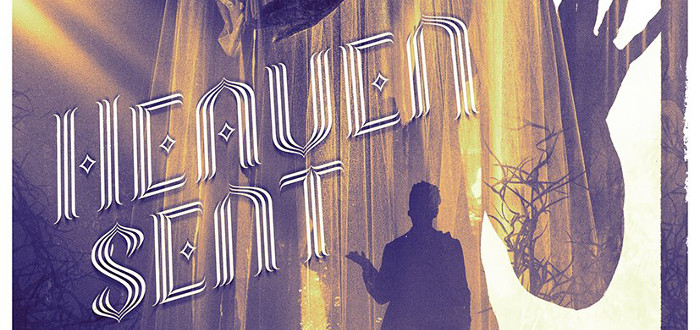
Writer: Steven Moffat
Director: Rachel Talalay
Main Cast: Peter Capaldi
Hello Whovians! Here we are with part two of Series 9’s enormous three-part finale! This has been my most anticipated episode of the season so let’s skip the usual intro and get down to it, shall we? This is ‘Heaven Sent’!
[SPOILER WARNING: YUP, THEY’RE HERE!]
The episode opens with a voiceover narration by the Doctor, telling us part of his philosophy on the nature of death whilst the camera pans around a room, clearly in a rather archaic building of some sort filled with machinery that’s highly advanced in appearance. There’s a brief and very curious shot of a hand pulling a lever before immediately melting away into dust, and the Doctor materialises. He’s fresh off of his kidnapping by way of Ashildr in the previous episode and he’s evidently disoriented. He quickly examines the room before making a solemn speech to whoever may be listening. He informs them in no uncertain terms that Clara’s death has instilled in him no weakness, only determination.. .and a thirst for vengeance. He is the Doctor, and he’s coming for them. Cue credits.
We’re a minute in and already this episode is.. .new, intriguing. It’s untrod ground, a feeling reinforced immediately by the fact that the opening credits only give us one name. Unease is really the name of the game throughout with ‘Heaven Sent’; it’s a tense edge-of-your-seat story in which nothing is for sure right up until the end. Writer Steven Moffat is literally at the top of his game here, taking his usual tropes such as a creepy but hazily-defined monster, questionable reality and of course a time travel conundrum to rock the brain, and ramping those tropes up to eleven. Without so much as a leap in logic or mild suspension of disbelief, Moffat crafts one of the tightest plotlines in his entire tenure as Doctor Who‘s showrunner. He brings all of his usual horror into play, with liberal use of dream imagery and nightmares throughout to enhance the surreal tone of the story. Fairy tales, a long-established favourite of Moffat as a showrunner, come into play in a huge way once again, and given that said fairy tale motif has largely been absent since Matt Smith’s run as the Doctor, it’s lovely to see it make a comeback.
Events that make seemingly no sense early on suddenly become extremely important later, and no seemingly-random scene is left unused by the episode’s climax; a climax which is unquestionably one of the most well-executed and stunning usages of a non-linear plotline in Doctor Who as a whole. The ending’s use of flashback elements and repetition manages to become incredibly clever and potently heartwarming all in one, and the episode’s pacing makes sure that everything is consistently fresh in our minds. It’s quite an unusual one in that regard, confining the Doctor to a single location with nothing to do but solve a puzzle and leave it at that (though fans of the serials ‘The Deadly Assassin’ and ‘Castrovalva’ might find themselves in familiar territory). You’re left wondering what’s about to happen while the Doctor does the same, and every time a question is answered another two are posed. Things never become overwhelming, though: you get the impression that Moffat is offering the viewer a few chances to guess at things in advance, to formulate their own ideas before the revelations come about. Topped off by a cliffhanger that literally rocks the status quo of modern Doctor Who as we know it, there isn’t a single moment in the entire story that doesn’t entirely captivate the audience’s attention.
I used the word ‘surreal’ above and overall it’s a good way to describe the episode in general, both in terms of its plot and its aesthetics. Director Rachel Talalay‘s artistic choices are sensational throughout with fantastic usage of lighting and cinematography to set the mood for scenes. A long drawn-out shot containing nothing but the Doctor sitting framed in shadow against a window; a stunningly beautiful pan over a starfield; camera-in-camera angles using the macabre setting’s security systems; the Doctor’s frantic dive from the top of the castle to its watery depths below (and the reveal of what those depths contain). These among many others are shots that will wow any viewer; I genuinely could not take my eyes off of things as they went along. It’s a visual masterpiece of an episode with some of the most elaborate set-pieces we’ve seen in recent years, a treat for the eyes. Even the more gruesome elements of the story, from the genuinely-eerie monster to a fairly shocking injury the Doctor suffers as it goes on, are rendered impeccably. I’ve seen it said that it wouldn’t be a stretch to call this the most beautiful episode of Doctor Who yet, and it’s a hard statement to argue with. The ears aren’t left out, that said, with the ever-present Murray Gold providing one of his most tense and thrilling scores to date. Given the story’s heavily-isolationist nature, the music has to bear quite a heavy burden insofar as conveying the nature of events goes and it does so excellently, so subtle that it’s barely noticeable but providing so much emotional context for things.
We’ll move onto the cast and characters for now…or should I say ‘character’. Yes, that’s right, in a first for the show, the entire 55-minute long episode is shouldered by one figure: Peter Capaldi in what will almost certainly become his standout performance as the Twelfth Doctor in years to come. Easily one of the most talented actors to ever have stepped into the many varied shoes of the Doctor, Capaldi is now taking centre stage in a way that has rarely happened before. The Doctor is alone, entirely alone in this story bar the grim spectre that pursues him, leaving Capaldi to act out literally every scene to himself (in fact, he has every line of dialogue in the episode bar a solitary one). As a result, what we are given is a most unusual thing for Doctor Who: an intricate, in-depth look at the Doctor’s own thought process.
I don’t envy Steven Moffat the task of writing such a formidable prospect, but between his scripted lines and Capaldi‘s astounding acting, the result is one of the most engaging and marvellous character pieces in all of Doctor Who. We see every thought that the Doctor’s mind, powerful enough to outwit entire armies and aged with experience beyond any other being in the universe, can come up with, particularly when forced into a trap. He analyses everything, spelling it out for the viewer as he goes. He soliloquises and monologues to himself at length, as if he’s discussing every action he’s going to take with himself just to see if he does, in fact, want to do just that. There are a few situations in ‘Heaven Sent’ where the Doctor is placed into a corner that seems nearly inescapable, and to watch him figure his way out of it using nothing more than sheer, blistering intellect and guile is a glorious reminder of just why we love the Doctor so much. It’s one of the longest-running tenets of Doctor Who: the Doctor’s greatest weapon is his mind, distinguishing him from so many other heroes of fiction. In this episode, we get a long, thorough look at exactly how alien and powerful that mind is.
Most of his dialogue comes through by way of him speaking to himself, or an imagined version of recently-deceased Clara as she plays fresh on his mind, and here we see perhaps more of the Doctor revealed than ever before now that he has nobody to hide from. We see the self-doubt that he so often hides with his bluster and bravado, we see the weakness that he hides through sheer determination, and we see how that famed never-say-die attitude of the Doctor can falter and crack inside. Capaldi brings us a performance in this that will go down as legendary in the annals of Doctor Who, I can say that confidently already. The Twelfth Doctor’s cold, calculating nature is contrasted sharply against his more vulnerable moments in the story; his fear of loneliness and death, his frustration at being unable to figure out his situation quickly enough and his overbearing sadness at the thought of yet another important friend in his life killed in the line of duty. Peter Capaldi‘s versatility is on full display throughout, hooking the audience through his raw natural charisma and almost fearsome screen presence and refusing to let them go. This is an undiluted performance as the Doctor; one where his own quirks and mannerisms are the only thing we can focus on throughout the episode, and it’s simply magnificent to observe.
All in all? ‘Heaven Sent’ is an episode I simply cannot praise enough. I can barely put it into words as it is: it was an incredibly bold move for Doctor Who to take and it paid off in spades. I suspect many people will have a new favourite after this one; it’s just that brilliant, it really is.
An instant classic. As close to perfection as Doctor Who gets.
Do join us next week, Whovians, for the final part of this story and the finale of Series 9 as a whole! The Doctor’s reached a new destination, he’s angry… and he came the long way round to get there. He’s ‘Hell Bent’.
Comment(2)
Comments are closed.
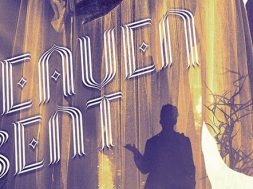

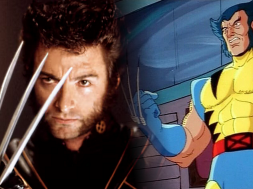



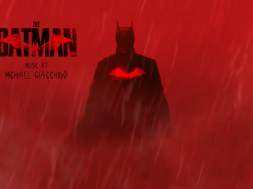
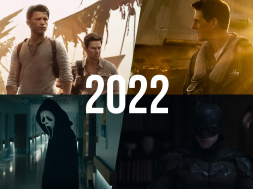

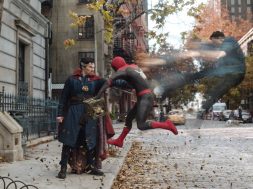
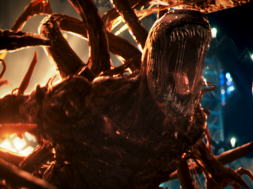


This is one of the most (if not the most) clever Doctor Who episode yet. It uses time-travel to it’s advantage. Little details like the thousands of skull in the lake which evidently turn out to be the Doctor’s previous lives and the painting are ingenious. I especially loved the idea that each Doctor would make a dent in the wall and that it would take him billions of years, billions of lives before he would punch through to the other side.
How many skulls does it take to fill that lake?